What comes to mind when you hear the words: amino acid. Protein? Muscles? Nutrients?
Our DNA holds the blueprint to create more than 25,000 protein-based compounds that are involved in countless essential functions, including growth, movement, and the regulation of metabolism. Each and every one of them requires some combination of 20 amino acids.
Yet, there are hundreds of amino acids not involved in protein synthesis at all, many of which we couldn’t live without. In this article, I’m going to introduce you to one of them: taurine.
Taurine is an omnipresent amino acid within the body, essential for the development and function of our cardiovascular, muscular, nervous, and ocular systems [1]. As such, it should be no surprise that taurine deficiencies are implicated in numerous disease states [2,3]:
- Neurodegeneration
- Stroke
- Macular degeneration and cataracts
- Metabolic dysfunction
- Heart failure
- High blood pressure
- Atherosclerosis
- Muscular dystrophy
- Sarcopenia
There are many reasons why taurine plays a role in these conditions. It’s required to regulate water balance, for cell signaling, to make bile and excrete toxicants, and, most importantly, it’s required for mitochondrial function and energy production.
This is why we’ve made it one of the cornerstone ingredients in our mitochondrial energy formula, Energenesis — because running low on taurine is guaranteed to impair mitochondrial function and energy levels.
Taurine is Necessary for Energy Production
I’ve already mentioned that taurine is a ubiquitous molecule in our bodies, because it is. But when we look at where it concentrates most, it’s apparent that the highest amounts of taurine are in tissues with huge energy requirements and a lot of mitochondria, such as the retina, nerves, kidney, heart, and skeletal muscle [4].
There are two primary reasons for this:
- Taurine is essential for mitochondrial protein synthesis [5].
- Taurine stabilizes the mitochondrial pH gradient necessary for mitochondrial enzyme activity and energy production [6].
If mitochondria don’t have enough taurine, energy production decreases and more harmful superoxide free radicals are produced [7]. In fact, taurine’s antioxidant effects are entirely due to enhancing oxygen consumption and energy production within mitochondria, not by the classical means of directly neutralizing free radicals.
Several clinical trials have shown that supplementing with 3 grams of taurine per day reduces biomarkers of oxidative stress and inflammation in those with metabolic dysfunction [8–10]. In one study, as an example, oxidative stress was reduced by 27% and markers of inflammation were reduced by 6–16% compared to increases in the placebo group [8].
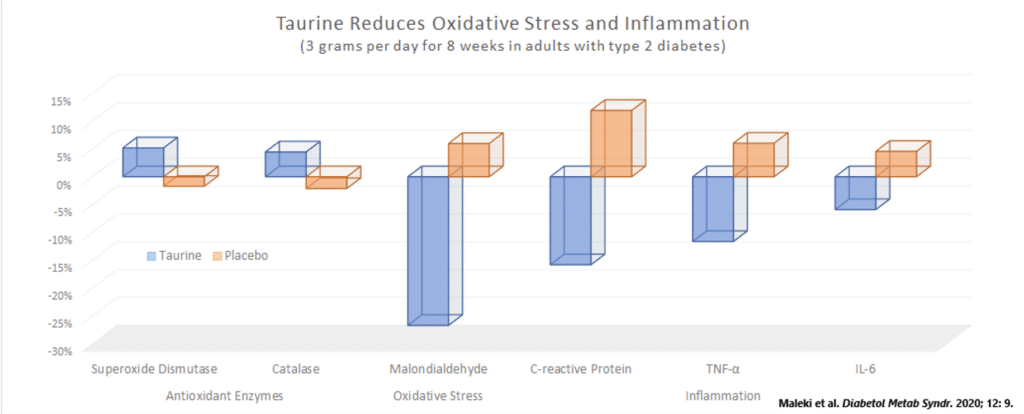
Over time, the build-up of oxidative stress causes mitochondria to simply terminate their lives and the life of the cell containing them [11]. The reduction in mitochondrial energy production and increase in cell death as a result of taurine deficiency is an established cause of heart failure and other cardiovascular diseases [12,13].
It’s also believed to play a role in the loss of muscle mass, strength, and function with aging, a condition called sarcopenia. Sarcopenic muscles are characterized by changes in calcium-dependent signaling pathways, increased levels of oxidative stress and inflammation, mitochondrial dysfunction, and enhanced muscle breakdown — all of which are circumvented with adequate taurine availability to the muscles [14,15].
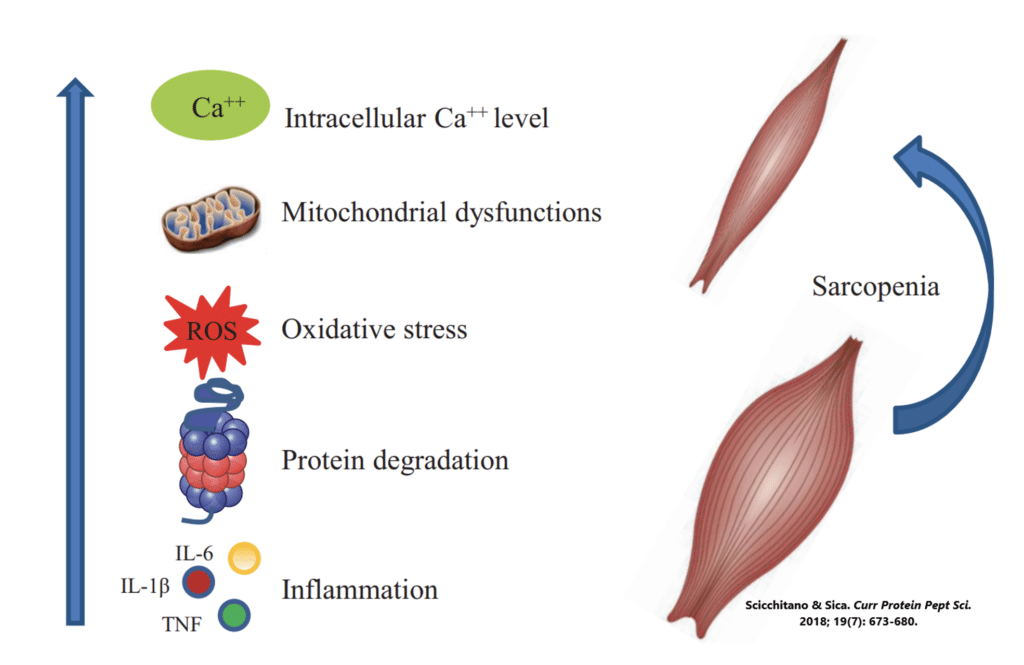
For example, in mice lacking the ability to uptake taurine into their skeletal muscle, exercise capacity is reduced by over 80% [16], whereas supplementing taurine into the diets of mice undergoing an exercise program enhanced mitochondrial function, energy production, and muscular strength [17].
We see these effects play out in humans too. A meta-analysis of 10 studies reported that 1–6 grams of taurine improved endurance exercise performance regardless of how much taurine was taken or for how long [18]. In particular, taurine increased the amount of time that people could run before exhaustion and increased power output.
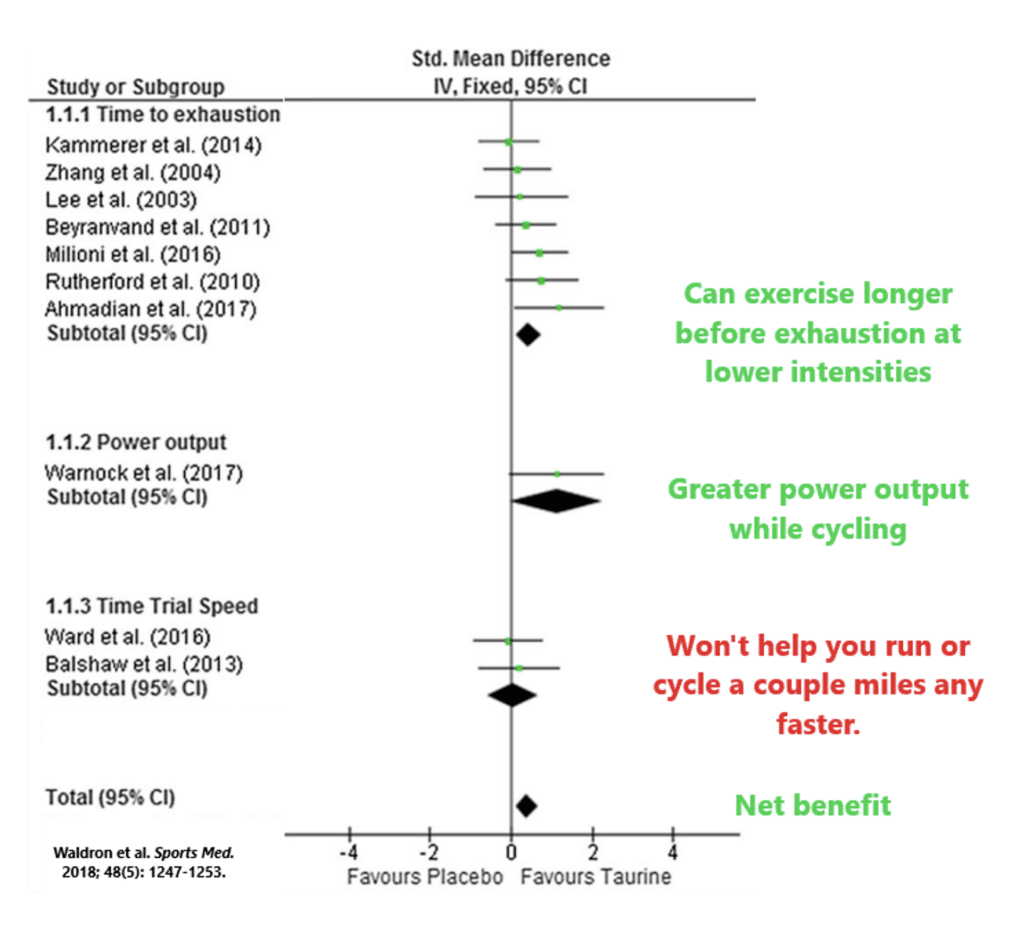
What’s really cool is that all but two of the studies involved young athletic adults, meaning that even healthy folks can expect to benefit from taurine supplementation. Of course, the benefits will be greater if you are coming from a less healthy baseline.
Those other two studies, for example, involved elderly folk with heart disease. Over just two weeks of supplementing with 1.5 grams of taurine per day, the participants improved their exercise time by 13–30%, exercise intensity by 11–20%, and the distance covered during exercise by 12–30% compared to a placebo [19,20].
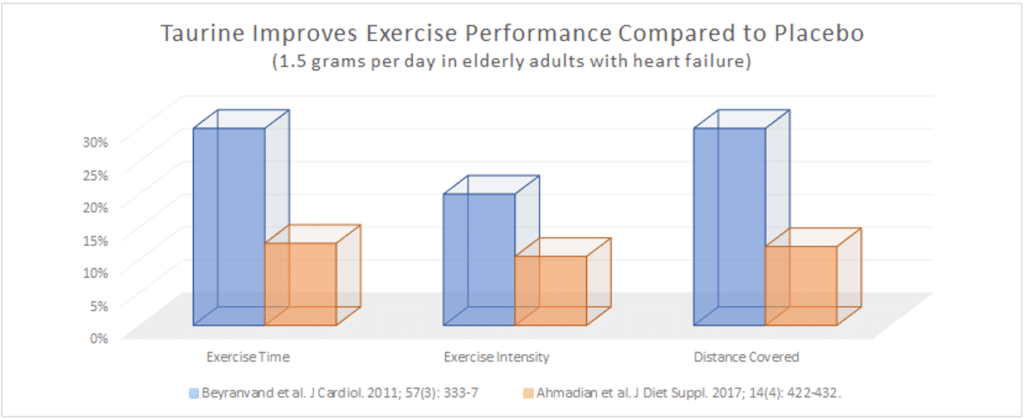
Summary
Taurine is an omnipresent amino acid within the body, essential for the development and function of our cardiovascular, muscular, nervous, and ocular systems. It’s also essential for the structural integrity and function of mitochondria.
The science overwhelmingly shows that through improving mitochondrial energy production, taurine provides a potent antioxidant effect, increases endurance exercise performance, and improves physical function. That’s why we’ve made it one of the cornerstone ingredients in our mitochondrial energy formula, Energenesis.
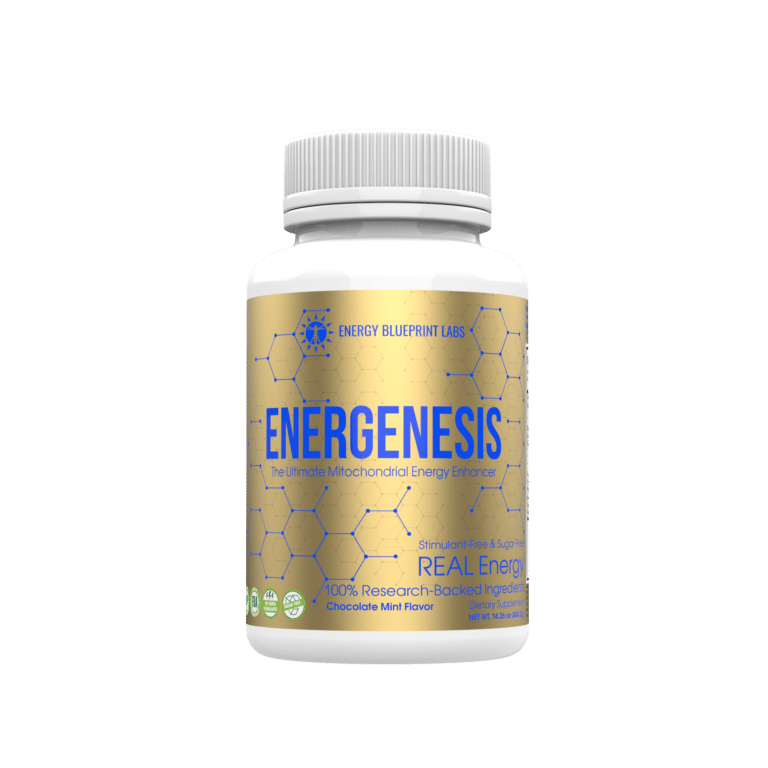
References
- Huxtable RJ. Physiological actions of taurine. Physiol Rev. 1992;72:101–63.
- Schaffer S, Kim HW. Effects and Mechanisms of Taurine as a Therapeutic Agent. Biomol Ther . 2018;26:225–41.
- Ripps H, Shen W. Review: taurine: a “very essential” amino acid. Mol Vis. 2012;18:2673–86.
- Hansen SH, Andersen ML, Birkedal H, Cornett C, Wibrand F. The important role of taurine in oxidative metabolism. Adv Exp Med Biol. 2006;583:129–35.
- Fakruddin M, Wei F-Y, Suzuki T, Asano K, Kaieda T, Omori A, et al. Defective Mitochondrial tRNA Taurine Modification Activates Global Proteostress and Leads to Mitochondrial Disease. Cell Rep. 2018;22:482–96.
- Hansen SH, Andersen ML, Cornett C, Gradinaru R, Grunnet N. A role for taurine in mitochondrial function. J Biomed Sci. 2010;17 Suppl 1:S23.
- Jong CJ, Azuma J, Schaffer S. Mechanism underlying the antioxidant activity of taurine: prevention of mitochondrial oxidant production. Amino Acids. 2012;42:2223–32.
- Maleki V, Mahdavi R, Hajizadeh-Sharafabad F, Alizadeh M. The effects of taurine supplementation on oxidative stress indices and inflammation biomarkers in patients with type 2 diabetes: a randomized, double-blind, placebo-controlled trial. Diabetol Metab Syndr. 2020;12:9.
- Rosa FT, Freitas EC, Deminice R, Jordão AA, Marchini JS. Oxidative stress and inflammation in obesity after taurine supplementation: a double-blind, placebo-controlled study. Eur J Nutr. 2014;53:823–30.
- Xiao C, Giacca A, Lewis GF. Oral taurine but not N-acetylcysteine ameliorates NEFA-induced impairment in insulin sensitivity and beta cell function in obese and overweight, non-diabetic men. Diabetologia. 2008;51:139–46.
- Jong CJ, Ito T, Prentice H, Wu J-Y, Schaffer SW. Role of Mitochondria and Endoplasmic Reticulum in Taurine-Deficiency-Mediated Apoptosis. Nutrients [Internet]. 2017;9.
- Schaffer SW, Ito T, Azuma J, Jong CJ, Kramer JH. Mechanisms Underlying Development of Taurine-Deficient Cardiomyopathy. Hearts. Multidisciplinary Digital Publishing Institute; 2020;1:86–98.
- Qaradakhi T, Gadanec LK, McSweeney KR, Abraham JR, Apostolopoulos V, Zulli A. The Anti-Inflammatory Effect of Taurine on Cardiovascular Disease. Nutrients [Internet]. 2020;12.
- Scicchitano BM, Sica G. The Beneficial Effects of Taurine to Counteract Sarcopenia. Curr Protein Pept Sci. 2018;19:673–80.
- Barbiera A, Sorrentino S, Lepore E, Carfì A, Sica G, Dobrowolny G, et al. Taurine Attenuates Catabolic Processes Related to the Onset of Sarcopenia. Int J Mol Sci [Internet]. 2020;21.
- Warskulat U, Flögel U, Jacoby C, Hartwig H-G, Thewissen M, Merx MW, et al. Taurine transporter knockout depletes muscle taurine levels and results in severe skeletal muscle impairment but leaves cardiac function uncompromised. FASEB J. 2004;18:577–9.
- Ommati MM, Farshad O, Jamshidzadeh A, Heidari R. Taurine enhances skeletal muscle mitochondrial function in a rat model of resistance training. PharmaNutrition. 2019;9:100161.
- Waldron M, Patterson SD, Tallent J, Jeffries O. The Effects of an Oral Taurine Dose and Supplementation Period on Endurance Exercise Performance in Humans: A Meta-Analysis. Sports Med. 2018;48:1247–53.
- Beyranvand MR, Khalafi MK, Roshan VD, Choobineh S, Parsa SA, Piranfar MA. Effect of taurine supplementation on exercise capacity of patients with heart failure. J Cardiol. 2011;57:333–7.
- Ahmadian M, Dabidi Roshan V, Ashourpore E. Taurine Supplementation Improves Functional Capacity, Myocardial Oxygen Consumption, and Electrical Activity in Heart Failure. J Diet Suppl. 2017;14:422–32.




